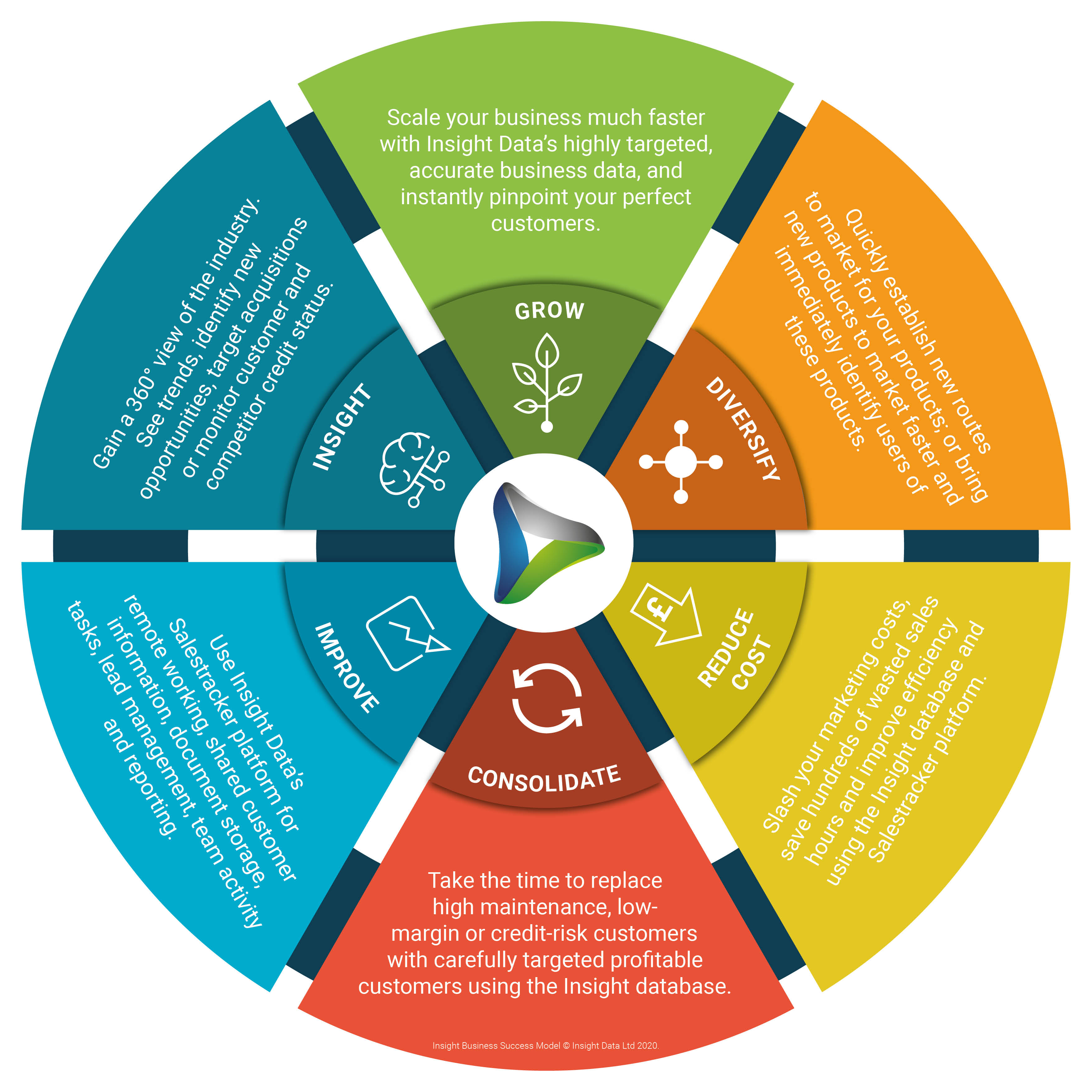Industry expert Andrew Scott discusses 6 business strategies companies can use to maximise value and profits.
When most people think of Insight Data, they probably think of marketing data; after all, Insight provides the industry with in-depth information on 15,000 fabricators and installers, as well as tens of thousands of decision-makers across the construction industry.
So business leaders are often surprised when, as a consultant and marketeer, I don’t always advocate ‘foot on the gas’ organic growth.
For some companies, such as those dealing with a surge in business, supply chain issues or skills shortages, there can be alternative strategies.
Through Insight Data, I’ve mapped out 6 different strategies that a company can deploy to add value and profitability. Some companies focus on one, others implement two or three of them. So, what are they?
- Organic Growth
- Diversification
- Cost Reduction
- Consolidation
- Business Improvement
- Industry Insight
Organic Growth
Driving organic growth is usually the first reason companies sign up to Insight Data. It enables them to pinpoint their exact target customers using in-depth information. So if your business supplies fabricators, installers or trade counters for example, it means you can filter data by preferred profile system, product range and volumes, or even credit rating, and find named decision-makers and their contact details.
Diversification
Having all your eggs in one basket can be risky. Bringing new products to market, or promoting existing products to wider audiences such as builders merchants, architects or housebuilders can spread the risk and create lucrative new revenue streams – and it’s all on the Insight database.
Cost Reduction
Companies can waste tens of thousands of pounds on sales and marketing costs. The market intelligence within Salestracker, Insight Data’s online platform, means companies don’t waste time or money on blanket marketing. It provides the tools and data to instantly access your ideal customers, so you need less sales and marketing resources to achieve the same results.
Consolidation
Some companies talk about consolidation, but this shouldn’t mean standing still. Taking 6 months or a year to consolidate should mean putting in place the processes to fuel future growth. One of your key priorities should be restructuring your customer base, replacing high-maintenance, low-margin or credit-risk customers with quality clients that are easier to manage, pay their bills and improve your margins. This will transform your business, and all the information you need to do it is on the Insight database.
Business Improvement
Having the right tools to manage your business, teams and customers is the secret to a scalable business. So, it’s no surprise that 700 industry suppliers already rely on Insight Data’s Salestracker – the cloud-based, remote-working database and CRM platform designed for B2B suppliers in the industry. It enables companies to centralise customer and prospect information, documents, tasks, leads and customer service. It also provides transparent reporting, so management can see what their teams are doing.
Business Intelligence
Using business intelligence helps business leaders make more strategic, informed decisions about products, markets and competitors. The in-depth information within the Insight database helps companies large and small understand all of this, so they can identify new opportunities or acquisition targets. What’s more, a credit monitoring facility enables companies to track the credit status of customers and competitors and get notifications of any changes.
Planning for 2021
For most suppliers in the industry, the tempo is upbeat with a positive outlook and plenty of opportunities ahead. Whatever your business objectives in 2021, using Insight Data’s ‘Business Success Model’ will help you achieve your goals.
For more information visit www.insightdata.co.uk











